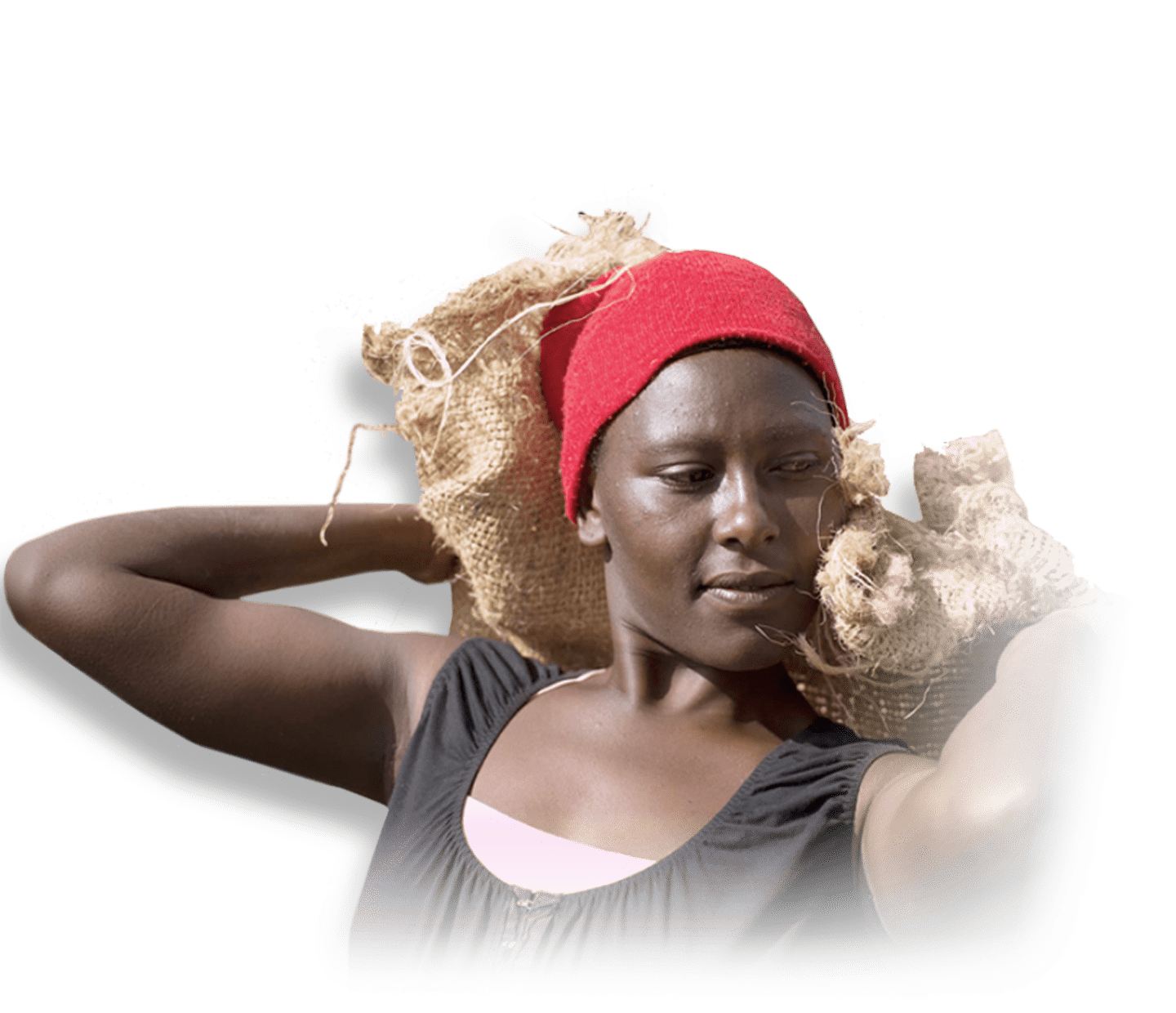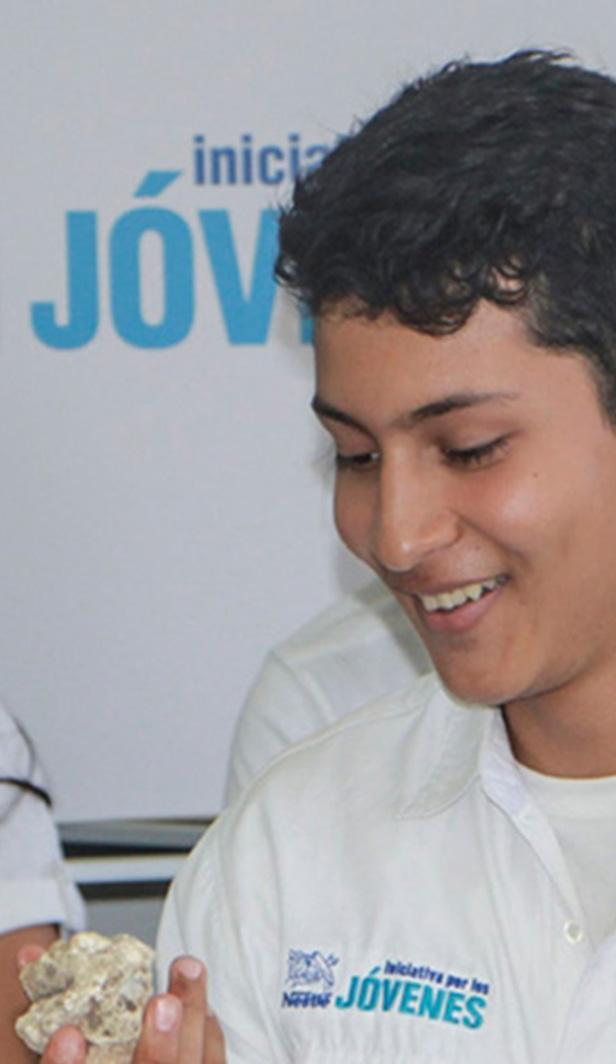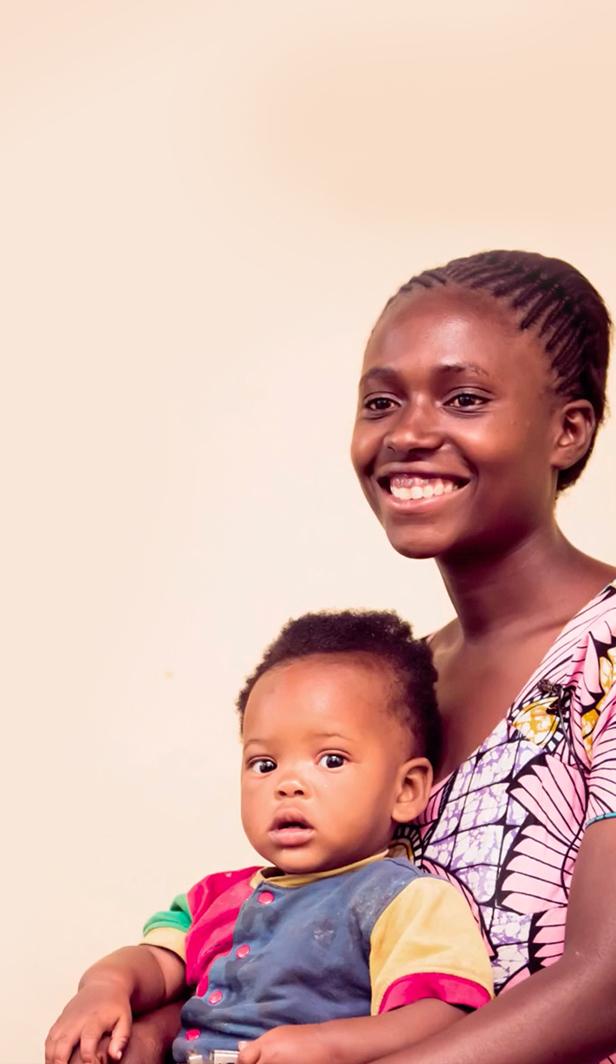Fueling a Journey
Dorotee grew up in the mountains near Lake Kivu in the village of Kiguri, Rwanda, where both of her parents were coffee farmers. “After selling the harvest, my parents were able to take good care of us.”
So, when she started raising her own family, she knew that coffee offered an opportunity to provide. She saved enough money to buy a plot of land with coffee trees on it and began harvesting.

Dorotee’s husband is a security guard who works away from home a lot. This leaves the job of running the farm to Dorotee. “He helps me on the farm indirectly because he pays for the laborers who assist me,” she explains.
When Dorotee first started out on her venture she was not satisfied with her yield. But in 2016 her producer organization started working with the Nestlé Farmer Training Program and the Kahawatu Foundation. What followed was training by top agronomists in best farming practices. “Before working with Kahawatu I was producing 500 kilograms or less from 700 coffee trees (about 1,2 acre), now I’m expecting to produce around 600 kilograms”.
But one good yield does not guarantee the long-term success of a coffee farm. The program is dedicated to genuine continuity. “They followed up with us and we also learnt how to plan well and reinvest the income from coffee”. We need to plan for hiring labour, buying materials and for harvesting the next season.”

“The Kahawatu Foundation is helping to make us better farmers. But the real benefits of partnering with them is that it has enabled me to take care of my children’s wellbeing.”

Time To Rise
It is also key that women are empowered to take leadership positions in farmer groups and on boards of local farmer organizations. Dorotee enjoys sharing her learnings with her farming community.
This knowledge-sharing is exactly what Nestlé hopes to achieve on a global scale through the empowerment programs in Rwanda and also Kenya. We hope learnings can be rolled out in the future across East Africa.
Thanks to the efforts of Dorotee and female farmers like her, there will be girls who don’t leave school early because they can see a different future; children who don’t end up being a field worker because their mother can afford to give them a chance to go to school; families that don’t go without, between coffee harvests, because income and nutritional sources are diversified.
“The Kahawatu Foundation is helping to make us better farmers. But the real benefits of partnering with them is that it has enabled me to take care of my children’s wellbeing,” says Dorotee. “I’ve been able to buy them school uniform and pay for them to go to school. I have big hopes that thanks to coffee I will be able to pay for their education until they all finish their studies. I am a happy woman in a happy home because of coffee. "

Today’s community favourites




